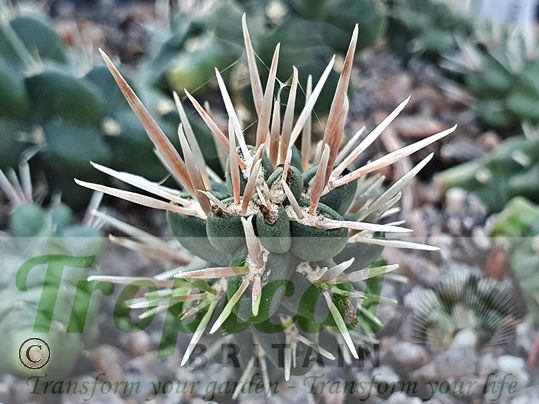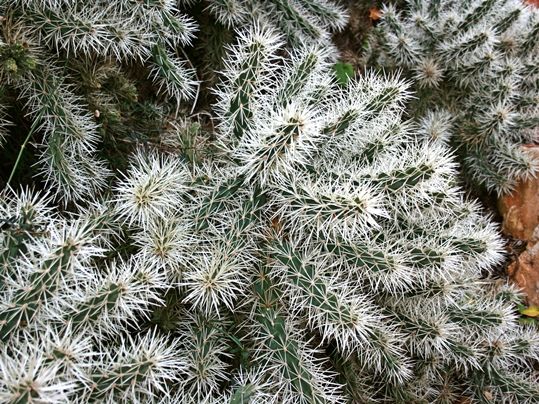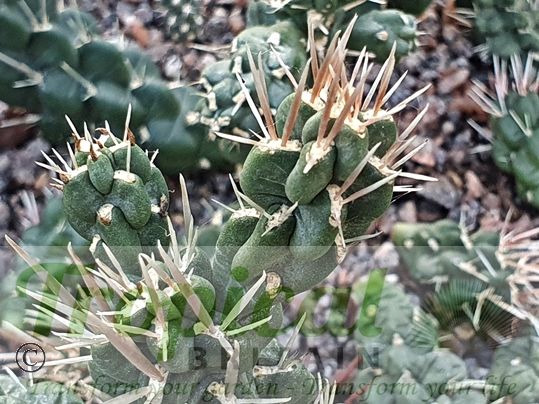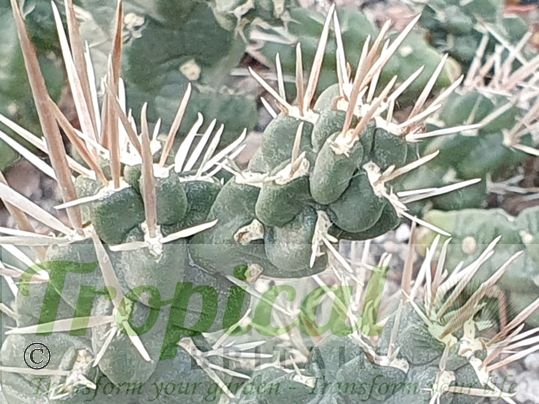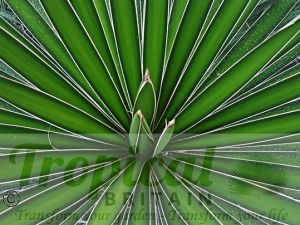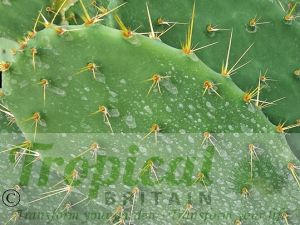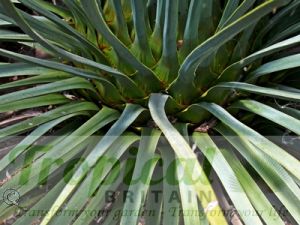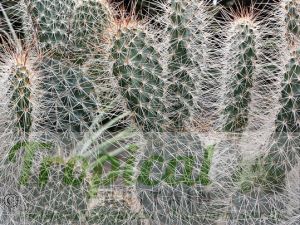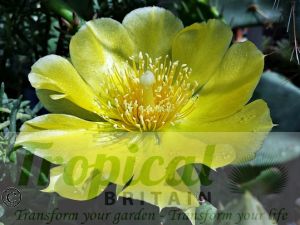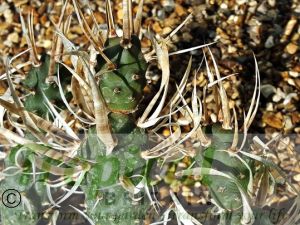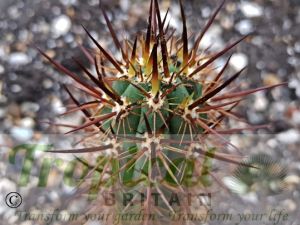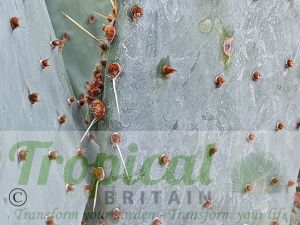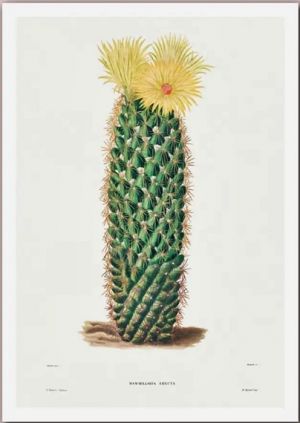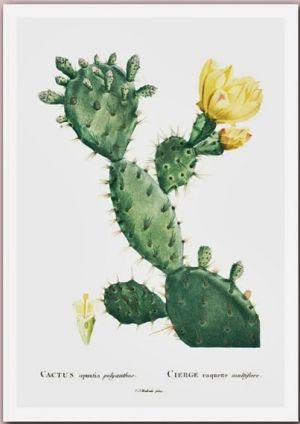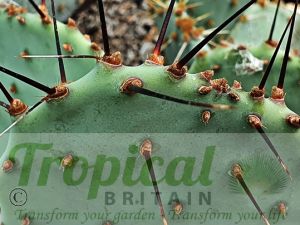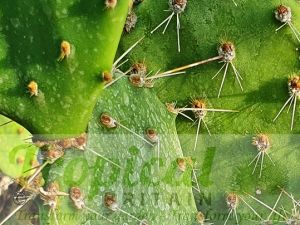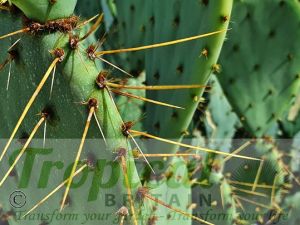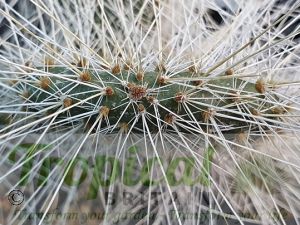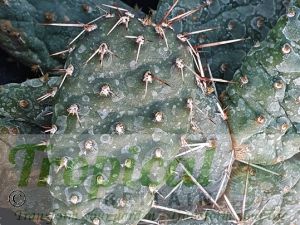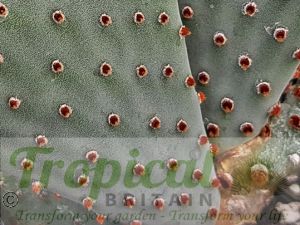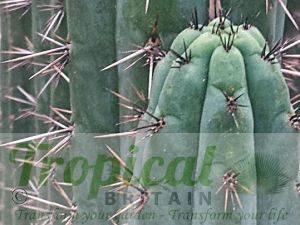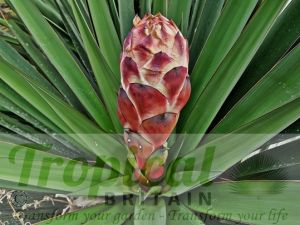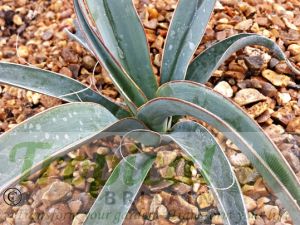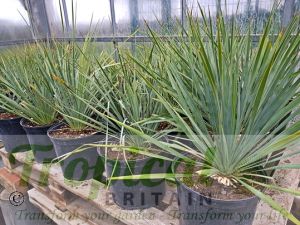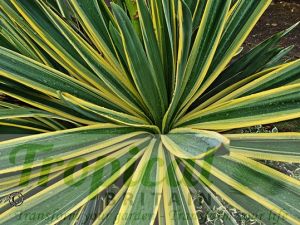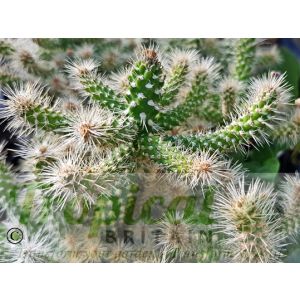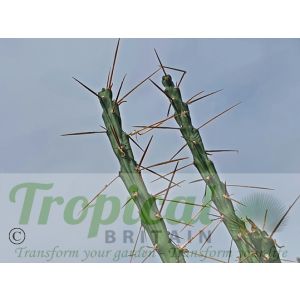Cylindropuntia tunicata
- Buy 2 for £11.50 each and save 4%
Cylindropuntia tunicata, Sheathed Cholla, grows in Texas and Northern Mexico and is naturalised in Cuba and many South American countries. The largest colony in the USA is on the south slopes of the Glass Mountains in Pecos County, Texas. It forms a compact, low, wide, densely branched bush and its long glassy spines are extremely attractive - providing you keep a safe distance - particularly when backlit against the sun. Its cylindroid cladodes have prominent tubercles which are arranged in a geometric whorled pattern. It is cold tolerant and usually frost-hardy down to at least -7C providing it is kept bone-dry throughout the winter. This is the challenge of growing it in the UK. A deep gritty free-draining substrate with added limestone is ideal. Planting it on a gradient or raised bed is best and if you can position it next to a large rock or rock formation so much the better. No matter how brilliant your drainage is you may want to consider putting a couple of layers of fleece over it, not just to keep it warm but to help keep it dry. Whatever you do, it will probably 'flop' somewhat from about late October through to late February. All chollas will tend to 'droop' in cold weather with the lateral branches hanging down in eccentric shapes and often the taller stems leaning over as well. This is usual and the plants will perk up in spring when new growth recommences.
Cylindropuntia tunicata is a fierce cactus. If you like your plants to be dangerous this is for you... but be warned: all you ruff'n'tuff spiky-loving cactophiles may have met your match with this one. Its sheathed spines will cling on to you at the slightest touch and it is not exactly a painless experience. The cladodes are loosely attached and will usually detach themselves when disturbed in true Jumping Cactus style. This evolutionary adaptation enables the plant to travel on the fur and hair of any unfortunate mammal that brushes up against it; the cladodes eventually being knocked free to root and form new plants. This method of vegetative reproduction is common with most chollas but the ease with which the cladodes detach themselves is particularly pronounced with Cylindropuntia tunicata. Your attempts to transplant or plant it out will inevitably create more 'plants' which root very easily. It is entirely possible your purchase may not arrive in one piece; look on it as a bonus!
Additional Information
| Order | Caryophyllales |
|---|---|
| Family | Cactaceae |
| Sub-Family | Opuntioideae |
| Synonyms | Cactus tunicatus, Cereus tunicatus, Cylindropuntia tunicata var. aricensis, Cylindropuntia tunicata var. chilensis, Grusonia tunicata, Opuntia puelchana, Opuntia tunicata |
| Geographical Origin | USA: Texas; Mexico: Chihuahua, Coahuila, Nuevo Léon, San Luis Potosi, Guanajuato, Hidalgo, Jalisco, Puebla, Tamaulipas, Zacatecas; naturalised in Cuba and South America |
| Cultivation | Full sun. Free-draining gritty/sandy soil with very little organic material. Alakaline pH. Plant on a gradient or raised bed to increase drainage. Plant well away from paths and footfall |
| Eventual Height | 35-40cm |
| Eventual Spread | 1m |
| Hardiness | Hardy in warmer locations but must have superb drainage in the UK. Under an overhang or in the lee of rocks is ideal. A thick mulch of grit and stone in winter. Chollas tend to 'droop' in very cold weather. Fleece to keep it dry as much as to keep it warm |
- Buy 2 for £11.50 each and save 4%

Free DELIVERY
ON ALL ORDERS OVER £99THIS OFFER IS VALID ON ALL OUR STORE ITEMS.

